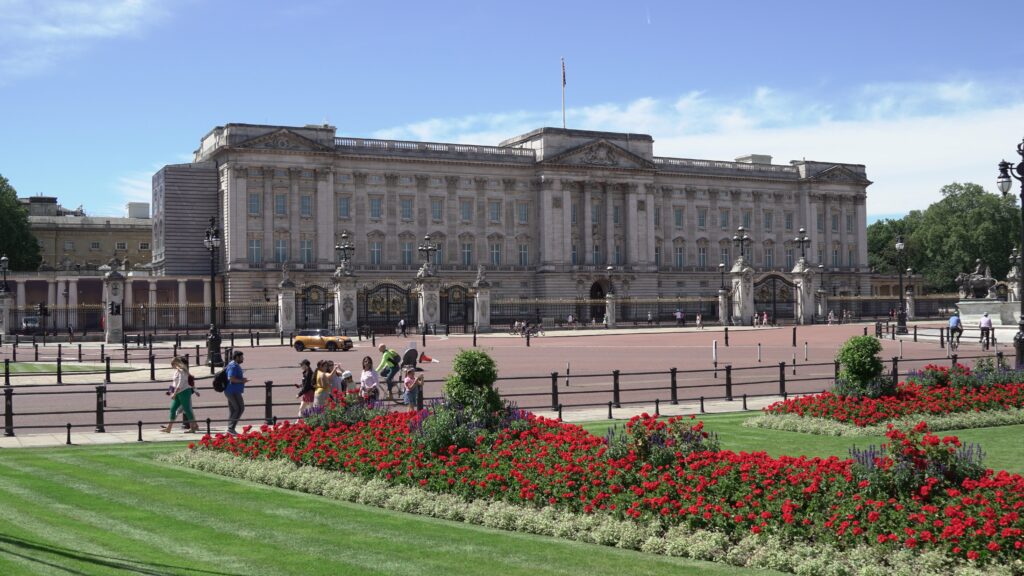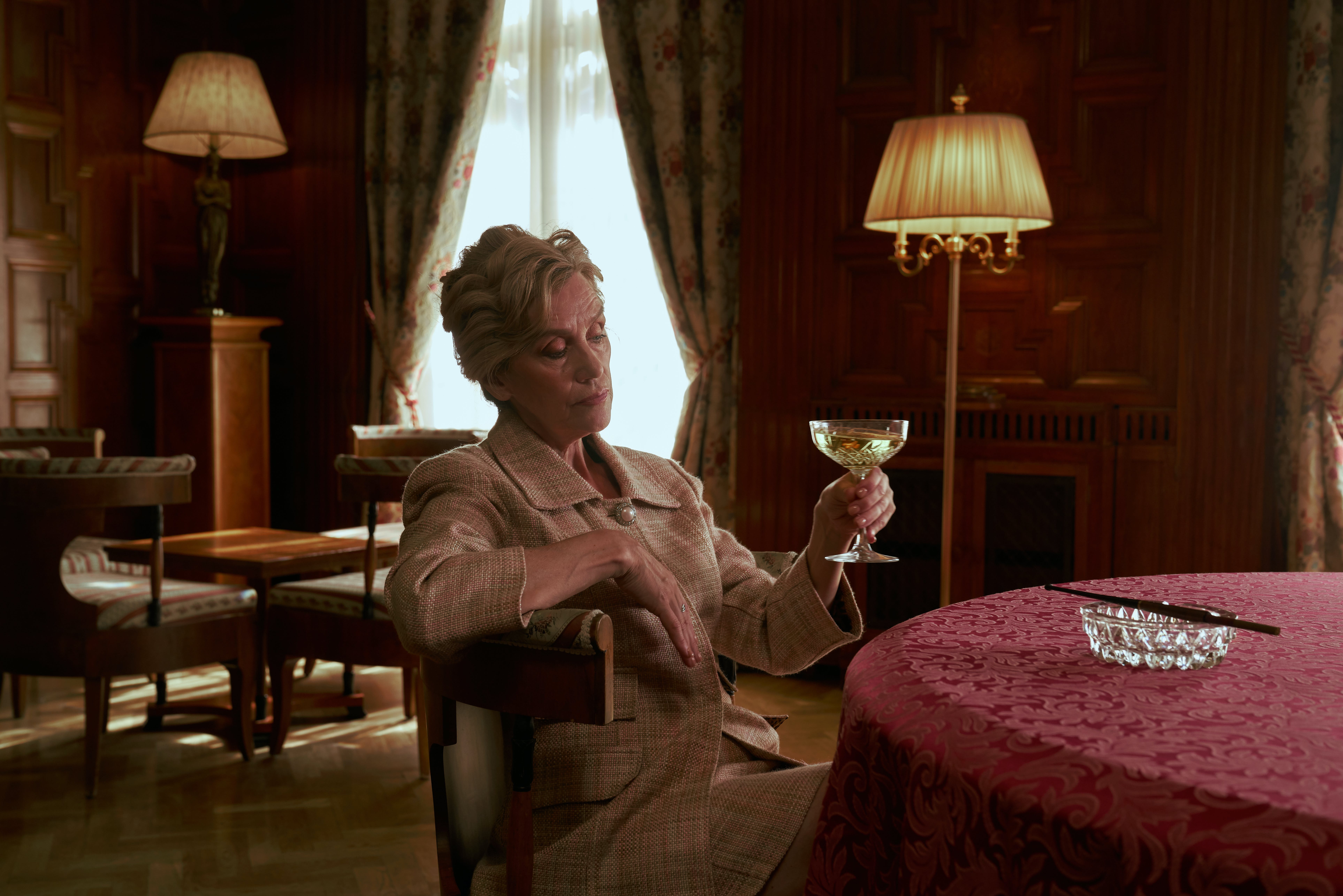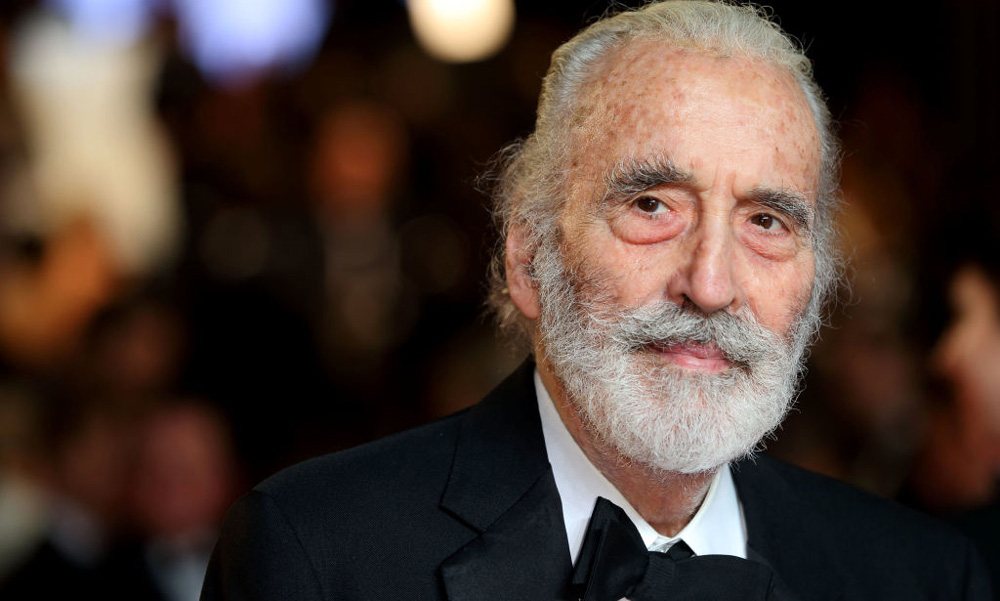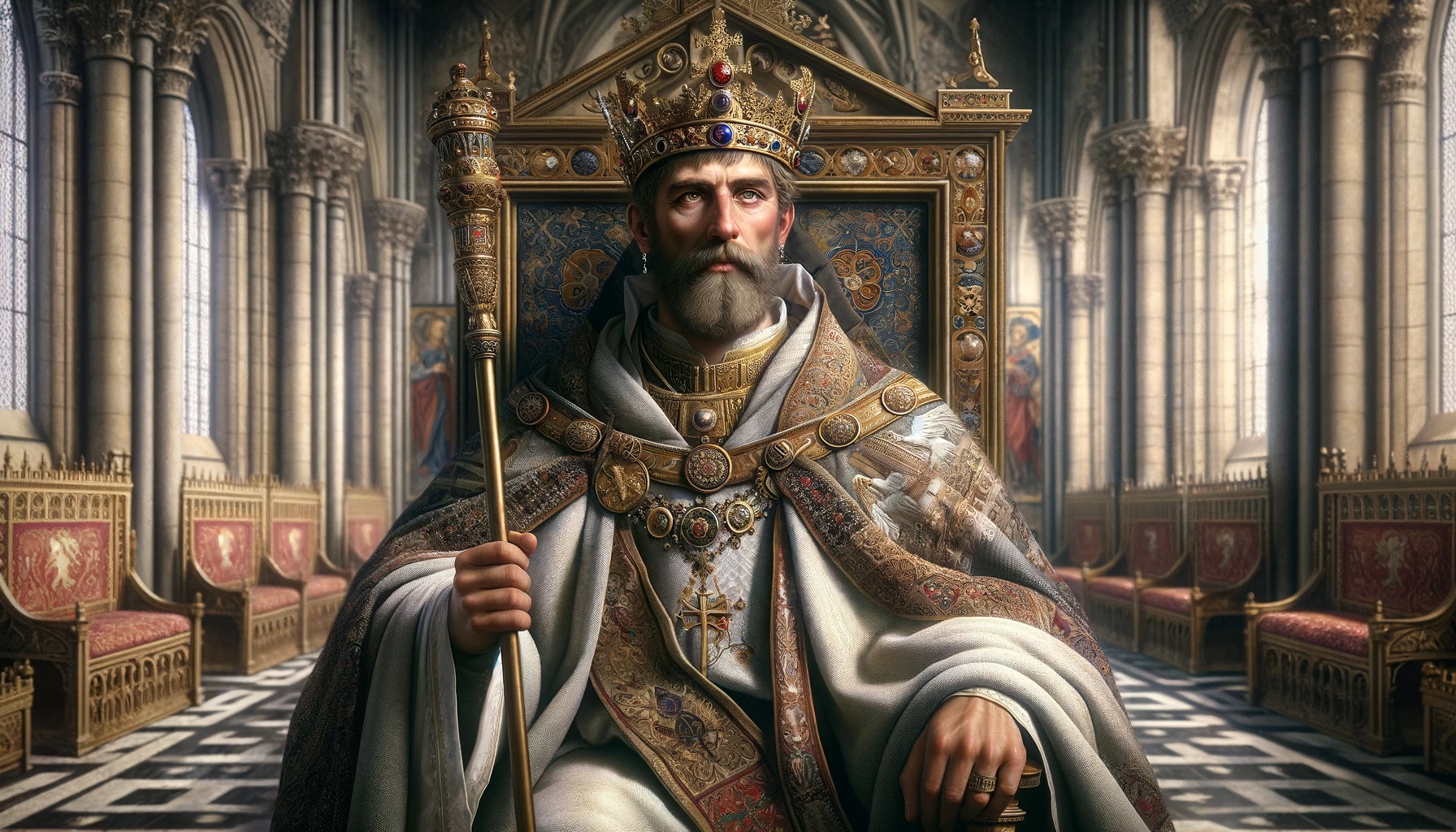The name Charlemagne is synonymous with the medieval era and the grandeur of the Frankish Empire. But did you know that his legacy lives on today through his descendants? Yes, you read that right. The descendants of Charlemagne, are still thriving in our modern world, with surprising connections to various populations around the globe. In this article, we will dive deep into the history of the descendants of Charlemagne and explore their fascinating connections to present-day societies. Get ready to be amazed by the enduring legacy of one of the most influential figures in European history.
Charlemagne’s Lineage
From his prestigious title as King of the Franks to the powerful Emperor of the Romans, Charlemagne’s reign spanned from 800 until his passing in 814. Noted for his military prowess and shrewd political strategy, Charlemagne fathered a broad spectrum of offspring, both legitimate and not-so-legitimate. There are countless claims to Charlemagne’s lineage, but the most credible genealogical evidence connects him to several of Europe’s most illustrious royal families.
What’s fascinating about descendants of Charlemagne isn’t just their sheer number, but their ability to perpetuate his influence throughout the centuries. With the passage of time and the twists and turns of history, the bloodline of this great emperor trickled down to commoners and royalty alike. A touch of Charlemagne’s genetic legacy can still be seen in the face of Europe, a testament to the profound impact one man’s lineage can have on the world.
Cultural and Historical Significance
The influence of Charlemagne echoes far beyond the confines of his reign and seeps into the cultural and historical framework of modern Europe. As the carrier of his legacy, his progeny has been instrumental in shaping significant parts of Europe’s history and society. Each descendant, knowingly or otherwise, became a vehicle of Charlemagne’s influence, echoing his revolutionary spirit across centuries.
These descendants didn’t merely wear the crown of their forefather, they also wore his vision, inspiring educational reforms that birthed the Carolingian Renaissance. Their historical roles reach far beyond royal duties, stretching into the realm of societal evolution and cultural formation.
The lineage of Charlemagne, thus, serves as more than just a genetic footprint; it is a historical beacon that has illuminated Europe’s path through the ages. From redefining political boundaries to spearheading cultural shifts, Charlemagne’s descendants truly personify the ripple effect that one influential figure can have on generations. It is a testament to the enduring power of lineage, a testament to Charlemagne’s far-reaching impact on the world stage.
DNA Studies Confirm Wide Spread of Charlemagne’s Descendants
Recent years have witnessed groundbreaking research in genetics that has thrown light on the expansive spread of Charlemagne’s descendants. A host of scientific studies have painted a captivating genetic picture, confirming that Charlemagne’s DNA is far more widespread than previously believed.
One particularly intriguing study put forth the bold hypothesis that every person of European descent is a direct descendant of Charlemagne. Although this assertion may seem a little far-fetched, it underscores the sheer magnitude of Charlemagne’s genetic legacy. These genetic revelations are truly spellbinding, transforming our understanding of European ancestry and Charlemagne’s generational influence.
This tantalizing glimpse into the past also paves the way for future genetic explorations into our collective heritage. As scientific advancements continue, the genetic narrative of Charlemagne’s descendants may yet reveal even more surprising connections. From bloodlines of royalty to the DNA of the everyday person, the threads of Charlemagne’s genetic legacy are woven into the fabric of our global population.
The fascinating field of genetics thus holds the key to unraveling the depth and breadth of Charlemagne’s vast lineage.
From Kings to Commoners: The Spread of Charlemagne’s Bloodline
Delving into the lineage of Charlemagne reveals an astounding reality. The imperial blood of this medieval emperor didn’t restrict itself to royal confines but spilled over into the lives of the common people. Even as the royal dynasties basked in the glow of Charlemagne’s genetic heritage, countless commoners unknowingly carried his legacy in their DNA.
Regardless of their social status, these individuals bore the indelible genetic mark of Charlemagne, threading him into the tapestry of their family histories. The result? An extraordinary diffusion of Charlemagne’s bloodline that spans socioeconomic divides and geographies, seeping into every corner of Europe and beyond.
As centuries rolled by, the descendants of Charlemagne, once rulers, merged into the sea of common life. Their royal roots gradually obscured by time and changes in societal structures, they inadvertently preserved Charlemagne’s genetic imprint, seeding it across generations.
Thus, while Charlemagne’s line is evident in the gilded annals of European royalty, it is also woven into the humble narratives of everyday individuals, underscoring the truly widespread reach of his lineage.
Descendants of Charlemagne in Today’s European Royalty

The influence of Charlemagne’s lineage extends boldly into the palaces of contemporary Europe. A tour through the intricate tapestry of modern royal genealogy reveals the enduring mark of Charlemagne’s blood. From the Plantagenet dynasty that ruled England in the Middle Ages, to the famous Habsburgs, who dominated much of Europe for nearly six centuries, his bloodline prevails.
The Capetians, the largest and oldest European royal house, also find their roots entwined with the great emperor. Closer to our times, Charlemagne’s genetic fingerprint is evident in the reigning British monarchy. His legacy quietly permeates their regal halls, a silent testament to his enduring influence.
So, the next time you catch a glimpse of these royal families on your television screen or in the glossy pages of a magazine, remember: the blood of Charlemagne continues to flow in their veins, a whisper of the past influencing the present. As the saying goes, old blood dies hard, and in the case of Charlemagne’s lineage, it appears to have found a perennial home in the annals of European royalty.
American Descendants of Charlemagne: A Broad Influence

Charlemagne’s lineage extends across the Atlantic, threading into the tapestry of American heritage. As settlers ventured from European shores to the New World, they brought with them a diverse mix of cultures, traditions, and yes, genealogical connections to Charlemagne. These settlers, many tracing their roots back to this mighty emperor, laid the foundation for future generations of Americans who could also claim a touch of Charlemagne in their DNA.
As a result, millions of Americans today, across a spectrum of ethnicities and backgrounds, can trace a part of their ancestral line back to Charlemagne. This fascinating blend of individuals includes notable figures as well as everyday citizens, each bearing the subtle genetic imprint of their illustrious forebear.
The Charlemagne connection in America, thus, expands beyond the confines of regal lineage, reaching into diverse corners of the population. It’s a reminder that the ripple effect of Charlemagne’s lineage is not confined to European shores, but extends to America as well, intertwining the past and the present in a captivating genetic narrative.
Christopher Lee – One of Descendants of Charlemagne

One of the most intriguing figures linked to Charlemagne’s lineage is the late Sir Christopher Lee, the legendary British actor known for his roles in “Dracula” and “Lord of the Rings.” Lee’s connection to the medieval ruler is more than just hereditary; he demonstrated a deep admiration for his ancestor’s historical significance, even going as far as to record a symphonic metal concept album in his honor.
Released in 2010, the album, titled “Charlemagne: By the Sword and the Cross,” is a grandiose musical journey through Charlemagne’s life and times. By blending his passion for acting and music, Lee celebrated his ancestral ties, bringing the echoes of Charlemagne’s legacy to a modern audience. This interesting intersection of Hollywood and medieval genealogy serves as a reminder of how Charlemagne’s influence continues to resonate through his descendants, even in the most unexpected of ways.
Statistical Analysis of Descent
Diving into the world of statistical genetics offers compelling insights into the extent of Charlemagne’s genetic legacy. Some researchers venture to assert that almost every individual of European descent could stake a claim to being a descendant of Charlemagne. While this assertion might seem audacious, it is grounded in the complex mathematical models of genealogy.
These models suggest that the further we travel back in time, the more likely we are all related to one common ancestor. In the case of Charlemagne, the probability of descent increases due to his numerous offspring. Therefore, the statistical evidence seems to reinforce the notion that the genetic reach of Charlemagne may indeed touch almost every person of European ancestry.
This perspective adds an intriguing dimension to our understanding of Charlemagne’s far-reaching influence, highlighting the fascinating interplay between history, genetics, and mathematics. While the exact degree of connection may vary, the statistical analysis paints a compelling picture of our interconnected heritage.
The Charm of Charlemagne’s Bloodline: Myths and Reality
Tracing one’s lineage to Charlemagne has a certain allure, and understandably so. As such, it has given rise to various intriguing tales and myths over time. Some of these claims have been romanticized or exaggerated, often blurring the lines between fact and fiction. However, it remains a reality that the genetic legacy of Charlemagne is far-reaching, arguably more so than we can accurately trace or measure.
This discrepancy between myth and reality adds an interesting layer to our understanding of Charlemagne’s lineage. It creates an appealing narrative that stirs curiosity and invites us to delve deeper into our shared history and the captivating world of genealogy. As we untangle the web of myths and reality, we gain a deeper appreciation for the enduring impact of Charlemagne’s bloodline and its continuing influence on our modern world.
Final Thoughts
Charlemagne’s remarkable legacy serves as a testament to the intricate web that binds human history together. His profound influence, evident in our royal bloodlines, cultural evolution, and even our DNA, keeps echoing down the centuries. While we can’t always pinpoint these connections, we all carry pieces of history within us, reminding us of the extraordinary roles our ancestors played. This notion becomes particularly poignant when we think of Charlemagne’s descendants. Whether they are today’s royals, renowned actors, or simply everyday individuals, each carries a fragment of Charlemagne’s legacy, woven into their very genes.
Tracing these genetic threads back to such a legendary figure invites us to look beyond our present, into a past that continues to shape us. In essence, Charlemagne’s story, echoed in the lives of his myriad descendants, serves as a compelling reminder of how our collective past intertwines with our present, shaping the course of future generations. As we continue to explore the fascinating realm of genealogy, it becomes increasingly clear that the past is not merely a chapter in history books but a vital, living part of our shared human story.
After reading this article, please check great video from UsefulCharts about the descendants of Charlemagne
